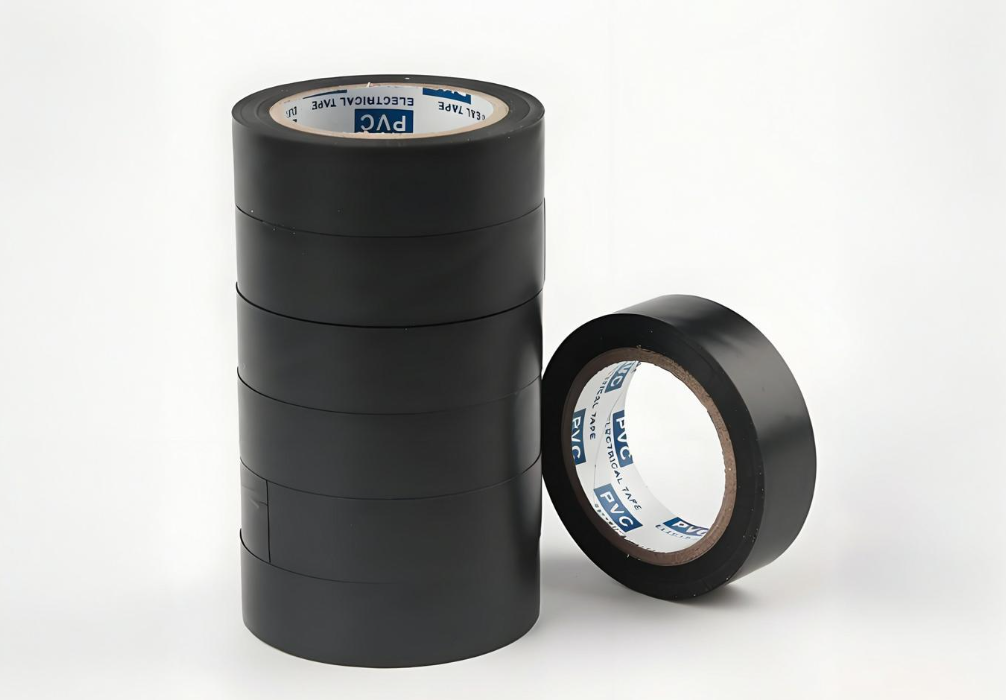As the global automotive industry continues to evolve, especially with the rise of new energy vehicles (NEVs), the dependence of automobiles on electronic technology is increasing. Electrical tapes, as important materials for electrical insulation, protection, and shielding, are widely used in automotive electronic systems. Their versatility makes them essential in various critical areas such as battery management systems (BMS), in-vehicle circuits, sensors, and connectors. This article will explore specific application cases of electrical tapes in the automotive industry.
- Automotive Battery Management System (BMS)
The Battery Management System (BMS) is one of the core components in new energy vehicles. The BMS monitors the battery’s status and ensures the battery operates in a safe and stable environment. In the BMS, electrical tapes are primarily used for electrical insulation, wiring connections, and thermal management.
- Electrical Insulation for Battery Packs
High-voltage battery modules inside battery packs require high-performance electrical insulation protection to prevent short circuits or fires. Electrical tapes like polyimide (Kapton) tape and polyvinyl chloride (PVC) tape, which offer excellent insulation properties, are commonly used to electrically isolate the battery modules from each other. These tapes can withstand high voltages and provide long-term, stable insulation protection. - Thermal Management and Heat Dissipation
Batteries generate a lot of heat during charging and discharging, so effective thermal management is essential. In this process, electrical tapes are used to secure heat dissipation materials to the battery modules or PCB circuit boards, ensuring heat dissipation without affecting electrical performance. Silicone tapes and polyimide tapes are commonly used for thermal management applications in high-temperature environments due to their good heat resistance and thermal shock capabilities.
- In-Vehicle Circuits and Connectors
Modern vehicles have complex electrical systems, including circuits and connectors, which need to provide good electrical isolation and durability. Electrical tapes are used in in-vehicle circuits and connectors for electrical insulation, fixation, and protection.
- Electrical Insulation and Protection
Wires and cables inside vehicles need protection from external friction, chemical corrosion, and moisture. PVC tapes, cloth-backed tapes, and polyester tapes are commonly used for insulating and protecting cables, preventing short circuits or cable wear, and ensuring the stable operation of the system. - Vibration and Shock Resistance
Vehicles experience significant vibrations and shocks while driving, so in-vehicle circuits and connectors need to be resistant to these forces. Electrical tapes are used to secure circuit boards and connectors, preventing loosening or damage during vehicle vibrations. For certain applications, such as automotive sensors and control modules, tapes also provide electromagnetic interference (EMI) protection.
- Automotive Sensors and Control Systems
Modern vehicles are equipped with numerous sensors and control modules, which are crucial to vehicle safety and driving performance. Electrical tapes are used in automotive sensors and control systems for electrical isolation, fixation, and interference protection.
- Electrical Isolation and Fixation for Sensors
Sensors in vehicles are typically installed in critical components such as engines, wheels, and steering systems. Electrical tapes are used to isolate sensors from other parts, preventing electrical interference or electrostatic discharge (ESD). Additionally, tapes help secure sensors, ensuring stable operation in high-vibration environments. - Electromagnetic Interference (EMI) Protection
Due to the large number of electronic devices in vehicles, electromagnetic interference (EMI) can disrupt the normal operation of in-vehicle circuits. Metallized tapes, such as aluminum foil tapes, are used to effectively shield against EMI, ensuring the proper functioning of automotive electrical systems. These tapes are essential for protecting sensitive circuits and electronic components from external electromagnetic radiation.
- Automotive Powertrain and Electronic Control Units (ECU)
The automotive powertrain includes the engine control unit (ECU), transmission control unit, power battery system, and more. All these systems require high-performance electrical protection. Electrical tapes in these systems are used for high-voltage electrical insulation, interference protection, and overall safeguarding.
- High-Voltage Electrical Isolation
With the rise of new energy vehicles, the prevalence of high-voltage circuits in power battery systems is increasing. In these high-voltage environments, electrical tapes, as insulation materials, effectively isolate high-voltage circuits, preventing current leakage or electrical accidents. Polyimide tapes, PVC tapes, and polytetrafluoroethylene (PTFE) tapes are commonly used for insulating high-voltage circuits, as they can withstand high voltages and temperatures. - Interference Protection
Automotive electronic control units (ECUs) are highly sensitive to electromagnetic interference. Electrical tapes help reduce EMI and protect ECUs from disruption. Tapes made of aluminum foil or gold-coated materials are effective at shielding against external EMI, improving the stability of the vehicle’s electronic systems.
- Automotive Lighting and Illumination Systems
Automotive lighting and illumination systems are critical safety components used daily by drivers. Electrical tapes in automotive lighting systems are mainly used for electrical connection insulation, protection, waterproofing, and UV resistance.
- Waterproofing and UV Resistance
Automotive lighting fixtures are often exposed to moisture and direct sunlight, requiring electrical tapes to have good waterproof and UV-resistant properties. Rubber-based tapes and PVC tapes effectively protect lighting circuits, preventing water from entering the fixture or causing short circuits in the circuit board. Additionally, UV-resistant tapes prevent degradation, discoloration, and brittleness caused by sunlight exposure, extending the lifespan of lighting systems. - Electrical Connection Protection
Electrical connections in automotive lighting systems need protection from external contamination and damage. Electrical tapes secure electrical connections and provide good insulation. Specifically, electrical tapes play a vital role in preventing loosening or breakage of electrical connections due to vibrations and impacts.
- Conclusion
Electrical tapes are widely used in the automotive industry, spanning from battery management systems to in-vehicle circuits, sensors, and powertrain systems. With the rapid development of automotive electronics and new energy vehicles, the application of electrical tapes will continue to expand. Electrical tapes not only provide good electrical insulation, protection, and interference shielding but also help address challenges posed by environmental factors such as temperature, humidity, and UV exposure. As technology continues to advance, electrical tapes will play an increasingly important role in the automotive industry, driving the electronic and intelligent transformation of vehicles.






